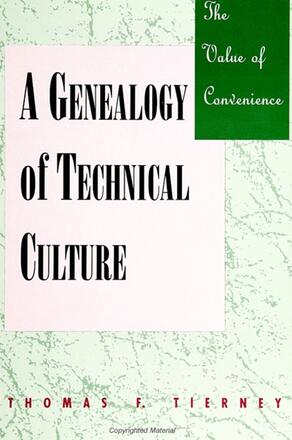
The Value of Convenience
A Genealogy of Technical Culture
Alternative formats available from:
Description
In this volume, Tierney identifies convenience as the value of central importance to the development of modern technical culture. While revealing modern attitudes toward technology, the human body, mortality, and necessity, Tierney focuses on the cultural value of convenience and on modern attitudes which emphasize consumption rather than production of technology.
Thomas F. Tierney is Assistant Professor of Philosophy and Political Science at Concord College.
Reviews
"This is a major contribution to the political theory of technology. It treats the most prosaic of concerns in the modern era, convenience, as a lens through which to explore what many would claim is the most important problem generated by the modern age—the domination of instrumental rationality and its identity with a particular kind of modern subject.
"Tierney pulls in material from a series of heterogeneous traditions in political theory and history. His treatment of the American frontier, for instance, is very clever and provocative, connecting back to the Heideggerian concern with death! Such surprises are often in this book." — Thomas L. Dumm, Amherst College